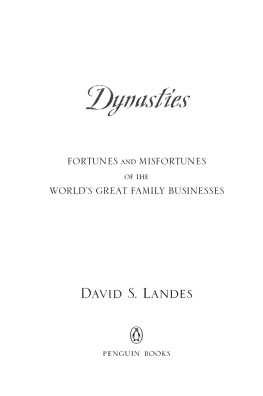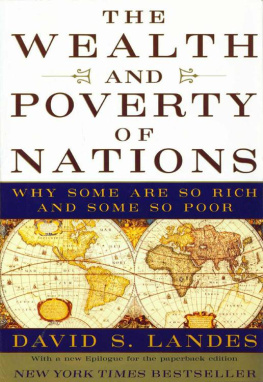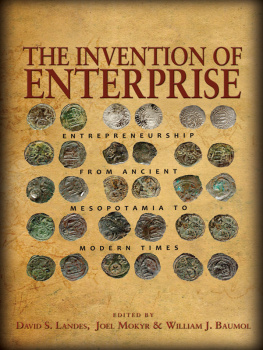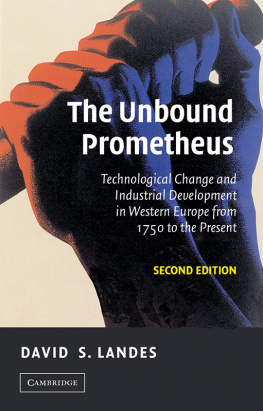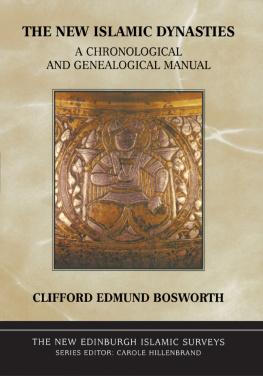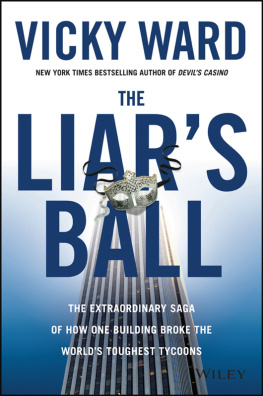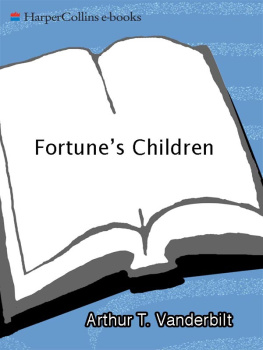David S. Landes is professor emeritus of history and economics at Harvard and the author of the New York Times bestseller The Wealth and Poverty of Nations. His other acclaimed books include Bankers and Pashas, The Unbound Prometheus, and Revolution in Time. He divides his time between Cambridge, Massachusetts; Cape Cod; and Paris.
Dynasties
FORTUNES AND MISFORTUNES
OF THE
WORLDS GREAT FAMILY BUSINESSES
D AVID S. L ANDES

PENGUIN BOOKS
PENGUIN BOOKS
Published by the Penguin Group
Penguin Group (USA) Inc., 375 Hudson Street, New York, New York 10014, U.S.A.
Penguin Group (Canada), 90 Eglinton Avenue East, Suite 700, Toronto,
Ontario, Canada M4P 2Y3 (a division of Pearson Penguin Canada Inc.)
Penguin Books Ltd, 80 Strand, London WC2R 0RL, England
Penguin Ireland, 25 St Stephens Green, Dublin 2, Ireland (a division of Penguin Books Ltd)
Penguin Group (Australia), 250 Camberwell Road, Camberwell,
Victoria 3124, Australia (a division of Pearson Australia Group Pty Ltd)
Penguin Books India Pvt Ltd, 11 Community Centre,
Panchsheel Park, New Delhi 110 017, India
Penguin Group (NZ), 67 Apollo Drive, Rosedale, North Shore 0632,
New Zealand (a division of Pearson New Zealand Ltd)
Penguin Books (South Africa) (Pty) Ltd, 24 Sturdee Avenue,
Rosebank, Johannesburg 2196, South Africa
Penguin Books Ltd, Registered Offices:
80 Strand, London WC2R 0RL, England
First published in the United States of America by Viking Penguin,
a member of Penguin Group (USA) Inc. 2006
Published in Penguin Books 2007
3 5 7 9 10 8 6 4
Copyright David S. Landes, 2006
All rights reserved
Illustration credits: Franois de Wendel
ISBN: 978-1-101-65090-5
CIP data available
Printed in the United States of America
Set in Fairfield
Designed by Joy OMeara
Except in the United States of America, this book is sold subject to the condition that it shall not, by way of trade or otherwise, be lent, resold, hired out, or otherwise circulated without the publishers prior consent in any form of binding or cover other than that in which it is published and without a similar condition including this condition being imposed on the subsequent purchaser.
The scanning, uploading and distribution of this book via the Internet or via any other means without the permission of the publisher is illegal and punishable by law. Please purchase only authorized electronic editions, and do not participate in or encourage electronic piracy of copyrighted materials. Your support of the authors rights is appreciated.
To Sonia and the whole family
PREFACE AND ACKNOWLEDGMENTS
T his is a book about family and business, success and disappointment, love and discord. At its heart is the dynasty, the succession and interaction of family members over generations; and the firm, the business unit that embodies and expresses this interaction.
Why dynasty? Say the word, and many images come to mind, exotic and dramatic, from the silken lineages of Chinese emperors to the soap-opera oil magnates of the 1980s television series of the same name. My interest in dynasties began with economic historythe review and analysis of economic trends and the deeds and achievements of economic actors. As a historian, I was quickly drawn into the drama of these stories and the larger-than-life quality of many of these competitors for wealth. These tales trace the tangled histories of legendary lineages such as the Fords, the Rockefellers, and the Guggenheims. But one need not be a Rothschild or a Toyoda to have use for the lessons in this book; our own families play central roles in most of our lives, and the successes, failures, and cautionary notes of these narratives can inform and inspire us all. We can learn a great deal about business from these dynasties; moreover, these are extraordinary men and women, full of eccentricities and genius, and they provide a wealth of entertaining tales.
Consider, by way of example, the legendary patriarch, the bold enterpriser who sets out to do well for himself and ends up founding an empire. Nathan Mayer Rothschild fits the bill. A child of the mid-eighteenth century, he was the third son of a German Jewish trader in miscellanythat is, whatever people were ready to sell or buy. He was not a handsome or imposing man. But this counted little next to a super-keen mind, a sharp tongue, and a sense of dignity and authority that some families need many generations to acquire. When a haughty English merchant threatened not to sell to him simply because the merchant disliked Rothschilds attitude, Nathan responded that there were plenty of Englishmen he could buy from, and decided to leave for England the next day. Once there, he quickly moved from merchandise into banking, and outdid the best of his competitors. The Brits were not always ready or able to understand the force of this outsider, who ignored or repudiated the rules of proper behavior. One day a powerful, wealthy English dignitary pushed his way into Nathans office and interrupted the busy banker at his task. Nathan summarily told him to take a chair; hed be with him in a minute. The man was offended: Do you know who I am? he said, pointing to the royal crest on the lining of his top hat. Nathans reply: Take two chairs. And back to work he went. Another time, some nosy type asked him how he had made his fortune. Answer: Minding my own business. It is from such brash, keen, dedicated material that great dynasties are founded.
Tales of money, power, and kinship inevitably entail drama and passion, especially with the passage of generations: as wealth grows, so do the opportunities for disagreement. Consider here the Gucci clan. The patriarch, Guccio Gucci (18811953), was the son of an Italian leather craftsman. As a young man, he traveled to Paris and then London, where he kept his eyes open and caught on to the commercial advantages of fine workmanship and fashionable elegance. In particular, he noted the customers hunger for the kind of luggage that announced its owners taste and status. So when he went back home in 1920, he borrowed money and opened a shop to sell such leather goods, meeting with tremendous success. In subsequent decades, his sons continued his work, opening branches in Italy and then abroad.
Guccio held the enterprise together, but after his death, his children and grandchildren engaged in protracted and costly disputes that made the fortunes of some of Italys busiest lawyers. The virulence and vindictiveness that characterized these quarrels are an embarrassment to the Gucci family and to Italian culture. Acrimony peaked when the divorced wife of Guccios grandchild Maurizio got angry enough to contemplate murder. She mentioned offhandedly to her housekeeper that she would love to be rid of her ex-husband. To the right person, that kind of careless remark was a business opportunity waiting for actionand the housekeeper was the right person. Soon thereafter, some hit men gunned Maurizio down on the steps of his office and then tried to blackmail his former wife. So much for the Maurizio branch of the family. The Gucci firm and name ended up in alien corporate hands, and the wife ended up behind bars, on the bad end of a twenty-six-year sentence.
T HESE ARE JUST BRIEF EXAMPLES from an enormous body of case studies of family business achievement, from mom-and-pop shops and local gas stations to monuments of market renown. As compelling and informative as such studies are, todays prevalent economic thinking has chosen to ignore the family firm as a subject of serious study and has all but written it off as obsolete and inconsequential. I believe that this view is both wrong and dangerously misleading.

